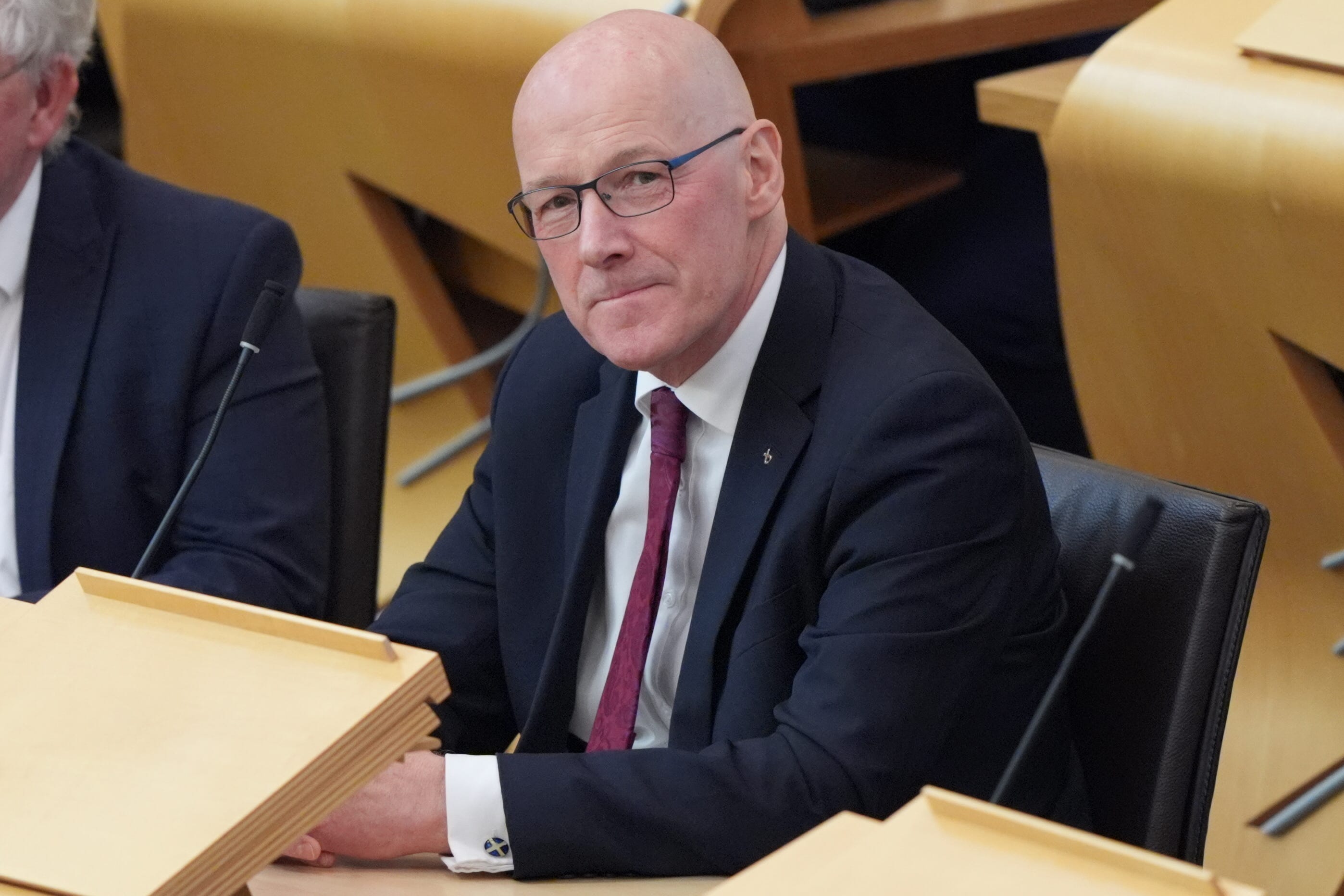Forbes more popular among public but Swinney preferred by SNP voters – poll
Researchers at Ipsos conducted polling as Kate Forbes and John Swinney emerged as the early frontrunners to be Scotland’s next first minister.

A new poll has suggested former finance secretary Kate Forbes is the most popular candidate to succeed Humza Yousaf among Scots – though former deputy first minister John Swinney is better liked among SNP supporters.
When asked who the best candidate for Scotland’s next first minister would be, research by Ipsos found 26% backed Ms Forbes, with 20% supporting Mr Swinney.
However among SNP voters, 30% preferred Mr Swinney – who served as Nicola Sturgeon’s deputy first minister for more than eight years – while 21% opted for Ms Forbes.
The polling comes despite neither politician having yet confirmed if they will stand to succeed Mr Yousaf as the next SNP leader and Scottish first minister.
He announced on Monday he was stepping down from the job after just 13 months in charge, with his decision to terminate the powersharing deal between the SNP and the Scottish Greens at Holyrood having sparked his downfall.
In the wake of that researchers from Ipsos questioned 1,127 adults across Scotland over Monday April 29 and Tuesday April 30.
Emily Gray, managing director of Ipsos in Scotland, said the results showed Mr Swinney “would be a more popular choice among SNP voters to replace him as First Minister than Kate Forbes would be”.
But she added: “However, Forbes has a seven point lead over Swinney when it comes to who the wider public think would make the best first minister.”
Ms Gray said: “The SNP will be looking to select a leader who can unite the party, secure co-operation from opposition parties so that laws and budgets can be passed and reverse the party’s slide in the polls.
“While Swinney may be better placed than Forbes to address the first two of those, on the third point the evidence suggests that Forbes may currently have wider appeal among the electorate than Swinney does.”
The polling found 37% of voters believe Mr Swinney would do a good job as first minster, while 23% believed he would do badly in the role.
Similarly 37% of people also thought Ms Forbes would be a good first minster, with 24% saying she would do a bad job.
However among those who voted for the SNP in 2021, 58% said that Mr Swinney would do a good job as first minister, with 10% saying he would do badly.
And while 46% of SNP voters said Ms Forbes would make a good first minster, 22% said they believed she would do a bad job.
Voters were evenly split on whether Mr Yousaf’s decision to end the Bute House Agreement between the SNP and the Greens was the right thing to do – with 45% agreeing it was, while 45% thought it was the wrong decision.
However 60% of those who voted for the SNP in the last Holyrood election said they felt ending the deal was the wrong decision.
2021 SNP voters are more likely to say Yousaf’s choice to end the Bute House Agreement was the wrong decision (60%).
More than eight out of 10 of those questioned (81%) agreed meanwhile that Mr Yousaf was right to resign, while half the public (51%) said he had “made no difference to Scotland”.
Less than one in 10 (8%) said he had changed Scotland for the better, with 37% stating he had changed the country for the worse.
Bookmark popover
Removed from bookmarks